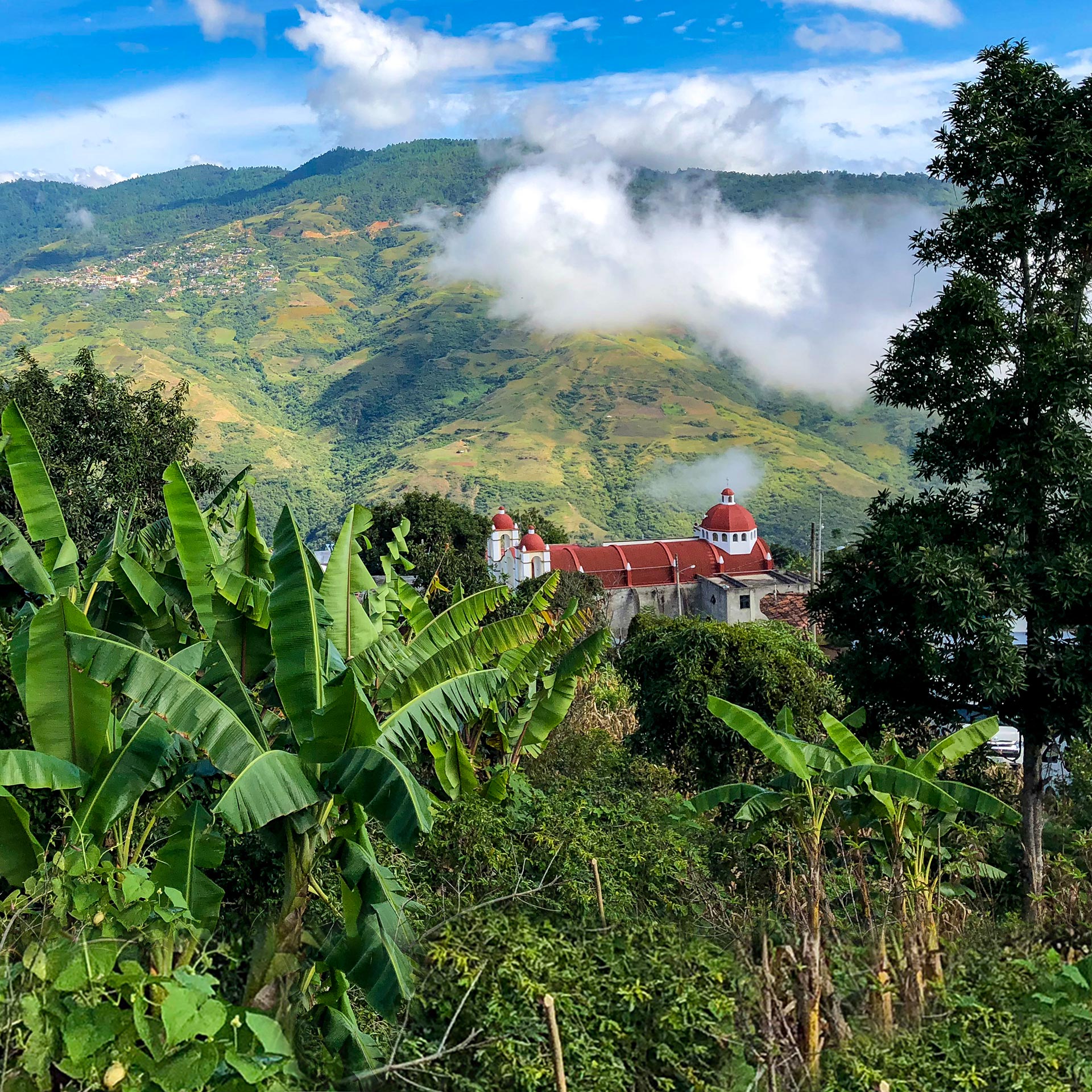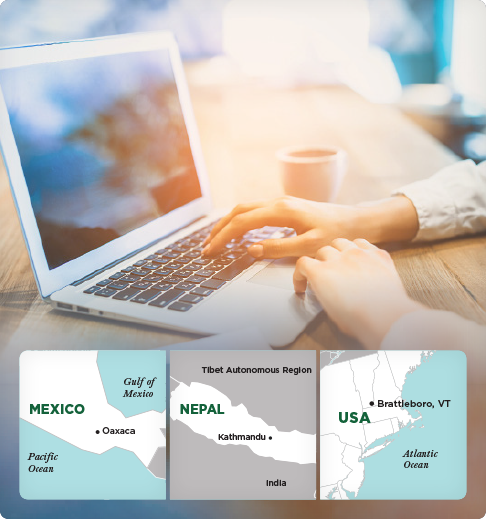Credits
36
Format
Part-Time Hybrid
Residencies
Mexico, United States
This program is not enrolling new students
Duration
2 Years
Critical Global Issue of Study
Development & Inequality

This program is not currently enrolling new students.
36
Part-Time Hybrid
Mexico, United States
2 Years
Development & Inequality
Learn to create, shape, and lead thriving communities, locally, and globally with SIT’s hybrid master’s degree in Sustainable Development Practice. Combining online coursework and field courses in Nepal and Mexico, the program offers part-time and full-time professionals the opportunity to build skills in community development and social change without stepping off the career track.
Starting with a brief summer residency on SIT’s beautiful Vermont campus, you will get to know your cohort and the program faculty. Through the summer and fall, your online courses will help you gain a deeper understanding of how current power structures, policy frameworks, and belief systems lead to today’s growing social and environmental disparities.
While continuing with your online coursework, you will have the opportunity to participate in the Nepal field course in the fall. During this course, you will interact with community leaders, advocates, and partners in the field and learn and apply the conceptual and practical tools needed to directly engage with a range of today’s most pressing community development and social change issues. Online coursework will continue through the spring.
During the second summer of the program, your online coursework will be combined with a course in Oaxaca, Mexico. Through field experiences and meetings with leading practitioners and organizations, you will meet groups engaged in alternative development paradigms and prominent agroecology and food sovereignty movements in the region.
During the second fall of the program, you will apply your new skills in a semester-long practicum with the organization of your choosing (online or in-person). Key to building professional networks for students, the practicum and field experiences provide a solid foundation for skill building and growth in the sustainable development field.
During the final semester, you will culminate your master’s degree with the development and presentation of your capstone research project. Designed and implemented by each student, the capstone offers you the opportunity to deepen your knowledge and experience with a topic of your choice or to strengthen a professional interest.
The program offers elective courses that allow you to pursue field work or other projects during two semesters of the program. These courses expand your experiential learning and provide opportunities to discover innovative solutions to social and environmental challenges all over the world.

Read about SIT Graduate Institute alumni careers through the SIT blog and our Career Impact page. Students who have graduated with this degree work in careers such as the following, among others.
NGO program director
Community development specialist
NGO or nonprofit communications director
Social policy program manager
Sustainable development project coordinator
Monitoring and evaluation director
Gender and development specialist
Community capacity-building senior policy associate
Sustainability educator


Vermont is at the forefront of sustainability, education, and regeneration. New England is a haven for start-ups, transition towns, community-owned forests, artisanal food and beverage companies, sustainable farming, eco-architecture, green energy, and many environmental and social-justice organizations. SIT’s idyllic southern Vermont campus offers woodland trails, hiking, running, and cycling, as well as a private library, café, study rooms with mountain views, and an entertainment space where students often gather at the end of the day to socialize. You will also be a few miles from Brattleboro’s downtown, where you will be able to enjoy an array of shops, restaurants, and eateries.
During your second semester, you will have the opportunity to take part in the Community Development and Social Change field course in Nepal. During the course, students visit communities that take part in diverse sustainability, conservation, and gender projects. For 10 days, students travel in Nepal to learn about and begin to understand the complexities and nuances involved in sustainable development processes. If students are unable to attend this course or prefer to take a different course, they can substitute with an online elective course or a field course in another SIT program.
During your fourth semester, you will have the opportunity to take part in the summer field course, Agroecology and Food Systems, in Oaxaca, Mexico. In this course, you will meet and learn from accomplished community leaders, farmers, and women’s groups who participate in diverse social movements that work toward greater food sovereignty and sustainable food production systems in their communities and region. Students have the opportunity to visit local villages, farms, and markets to facilitate their understanding and to experience the complexities of achieving sustainable and just food systems.
Please note that in order to take advantage of dynamic learning opportunities, program excursions may occasionally vary.
Upon successful completion of the program, students will be able to:
With SIT’s experiential learning curriculum, you’ll learn how to put theory into practice. In addition to core courses, a broad range of elective choices let you focus on courses that will help you meet your career goals. Courses will be completed in small personalized cohorts. Our hybrid master’s degree format allows you to complete most of your coursework online so you can stay in your job and community.
View past capstone projects associated with this degree.
On this part-time program, you’ll earn 36 credits during two years.
Global Practicum
An integral part of SIT’s experiential learning philosophy is the practicum experience. Whether online or in person, the practicum will allow you to apply learning from the classroom directly to real-world settings while gaining hands-on, professional experience you can put to immediate use after you graduate. Career Services and your advisor will support you in finding an approved practicum that aligns with your interests and career goals. This practicum experience will give you the opportunity to work in the field of sustainable development, as well as expand your professional network.


SIT’s Student Financial Services Office provides guidance on all aspects of funding your degree throughout the application process and during your degree program. Tuition costs vary by program and scholarships are available.
See Full Breakdown